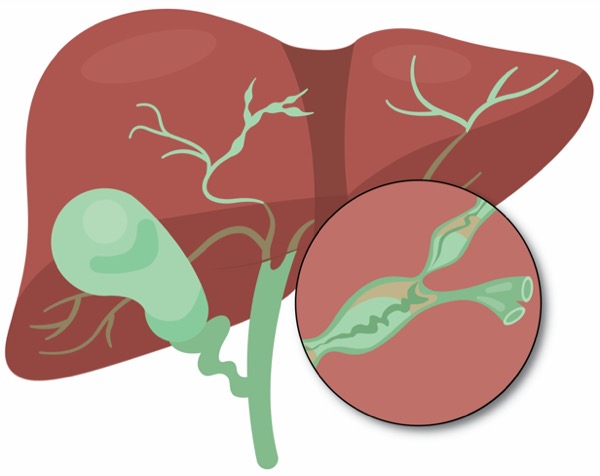SAN DIEGO—The peroxisome proliferator–activated receptor agonist elafibranor is predicted to increase transplant-free survival and reduce mortality over 15 years in patients with primary biliary cholangitis, according to a new analysis of data from the phase 3 ELATIVE trial presented at The Liver Meeting 2024.
Elafibranor (Iqirvo, Ipsen) has activity against both peroxisome proliferator–activated receptor (PPAR)-alpha and PPAR-delta and is the first PPAR agonist approved for PBC. The ELATIVE trial, which led to the FDA’s approval of the drug in June, compared 80 mg daily of elafibranor (n=108) with placebo (n=53) over 52 weeks and demonstrated biochemical responses in 51% of the treatment group and 4% of the placebo group.
One of the secondary end points of the trial was prediction of the need for a liver transplant or death within one year using the GLOBE (death and transplant) and UK-PBC prognostic (transplant only) scores, which were collected at baseline and weeks 4, 13, 26, 39 and 52. Both scores rely on levels of alkaline phosphatase, bilirubin, aspartate aminotransferase, alanine aminotransferase, albumin and platelets.
These scores “project likelihood of being free of death and liver transplantation for a much longer period of time than some of the more traditional scores, so as a risk assessment tool, we find that to be very helpful,” said investigator Kris Kowdley, MD, the director of the Liver Institute Northwest, in Seattle.
Presenting the study, Dr. Kowdley showed data that demonstrated clear between-group separation in both scores: By week 13, the change in GLOBE hovered around –0.35 in the elafibranor group compared with +0.1 for placebo (abstract 0043). Dr. Kowdley presented data that demonstrated clear between-group separation in both scores: By week 13, the change in GLOBE hovered around –0.35 in the elafibranor group compared with +0.1 for placebo. By week 4, the change in UK-PBC was between –0.20 and –0.25 for the elafibranor group compared with –0.10 and –0.15 for placebo.
The researchers estimated that based on the GLOBE score at 52 weeks, median transplant-free survival (TFS) at 15 years increased with elafibranor (4.9%) compared with placebo (0.7%). Similar trends were seen based on the week 52 UK-PBC scores: 1.6% increase in median estimated TFS at 15 years, versus a 0.4% decrease with placebo. The estimated effects were maintained regardless of disease stage or biochemical response.
{RELATED-VERTICAL}“We conclude that treatment with elafibranor was associated with improvements in predicted transplant-free survival in patients with PBC,” Dr. Kowdley said.
During a Q&A period following the talk, an audience member noted that GLOBE and UK-PBC were developed based on patients treated with ursodeoxycholic acid and suggested that the models might not fit drugs that have anti-inflammatory or antifibrotic activity. Dr. Kowdley agreed but noted that “the fact that you see this reduction as early as four weeks, I think, is largely driven by alkaline phosphatase and is, therefore, an anti-cholestatic response.”
The results should be helpful to physicians, said Vania Kasper, MD, who co-moderated the session. “Being able to prepare a patient in general for the expectancy of a liver transplant and when it would likely come is important for both the family and your management, your surveillance, and how you treat the patient,” said Dr. Kasper, an associate professor of pediatrics at Brown University Health, in Providence, R.I., in an interview.
The other co-moderator, Yury Popov, MD, PhD, an associate professor of medicine at Beth Israel Deaconess Medical Center, in Boston, pointed out the limitations of these models. “Surrogate models are all we currently have to predict the risk of clinical disease progression and liver transplantation. It’s probably not the most perfect way, and I think there is a huge effort in trying to improve the predictability of the surrogate study end points and surrogate parameters,” he told Gastroenterology & Endoscopy News. “This is a very active area of research that is ongoing in many biliary diseases, including PBC.”
—Jim Kling
Drs. Kasper and Popov reported no relevant financial disclosures. Dr. Kowdley reported financial relationships with 89bio, AbbVie, AstraZeneca, Boehringer Ingelheim, Gilead, GSK, High Tide, Inipharm, Intercept, Ipsen, Madrigal, Mirum, NGM, Novo Nordisk, Pfizer, Pliant, Protagonist and Zydus.

